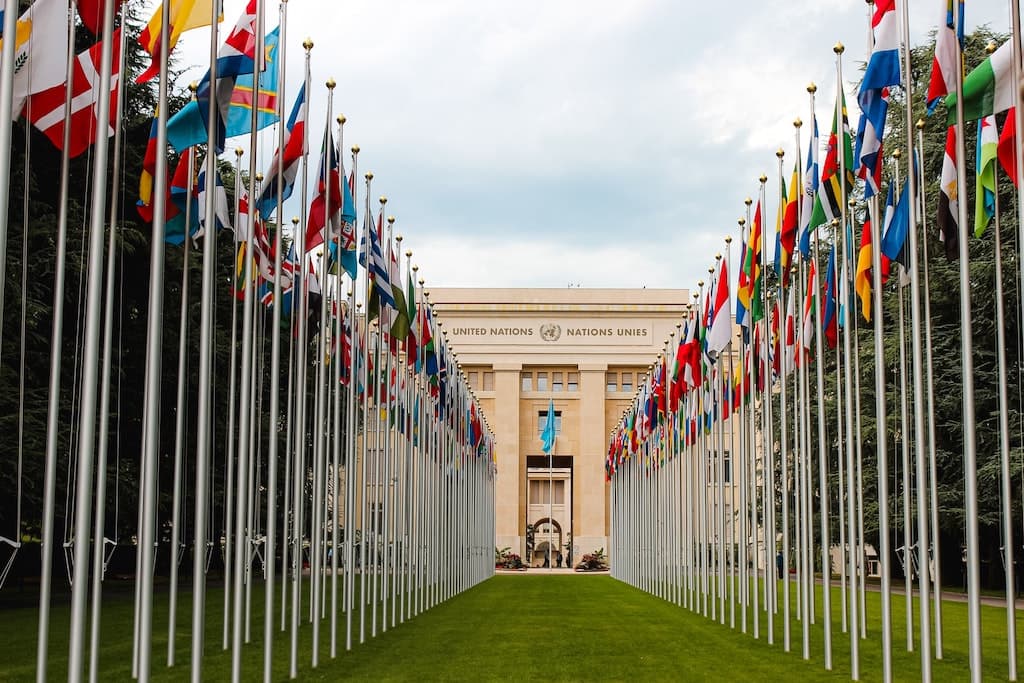COVID-19, its rapid spread and the insidious toll it is taking on humans as well as on the global economy is a perfect example of why sustainability and the UN Sustainable Development Goals (SDGs)1 are more important now than ever. This insidious virus has hit every corner of the earth with over 17 million confirmed cases and 675,000 death, as of the time of this writing. Estimates from the International Monetary Fund (IMF) here leave 2021 global GDP 6 ½ percentages point lower than the pre-COVID-19 projections of January 2020. While none has been as rapid-spreading or as devastating as COVID-19, we have seen pandemics before: SARS in 2002, the Avian Flu in 2005, H1N1 in 2009, MARS in 2012 and we will continue to see pandemics. After all, we live in a global world.
So, while globalization will surely contract most especially as the US has been ‘shut out’ of every country in Europe and most of Asia, and as businesses reassess supply chains and other factors, international travel, no matter how much it may be curtailed, is here to stay. And so is the potential for the spreading of viruses and other diseases without adequate water, sanitation and hygiene which are all key to containing infectious diseases including COVID-19.
The ravages of this virus – human suffering, loss of life, bankruptcies, jobs lost and significant financial stress – makes it clearer than ever why sustainability and in particular the SDGs, not narrow ESGs, are so important. For example, SDG 6 Clean Water and Sanitation addresses the simplest and most effective measure one can take to protect against the virus which is out of reach for 40 percent of the global population, or 3 billion people, who do not have a handwashing facility with water and soap at home. COVID-19 should make it clear that ‘universality’ is what matters to shareholders, employees, and all stakeholders. Everything is ultimately ‘material’ if it has an impact on health, safety, peace, justice and the global economy.
COVID-19 has lessons to be learned for other natural disasters such as climate-induced catastrophic risk. As with any macro systemic risk, both have a low probability of occurrence but entail extremely high costs including humanitarian costs, and the costs associated with recovery. And both show the vulnerability of economic and other disruptions such as supply chain disruptions, across economies due to our interconnected world
The SDGs are a much broader measure of sustainability risks and opportunities than the ESGs. The SDGs have more factors and address the full spectrum of global macro systemic issues that matter to all stakeholders, all businesses and all countries which we are seeing played out, for example, from the pandemic. Unless we change the debate and focus on what really matters – global macro systemic risks – these risks will continue to manifest themselves as we are witnessing with COVID-19. SDGs focus on the elimination of poverty, zero hunger, good health and well-being, quality education, clean water and sanitation, reduced inequity, as well as the environment and other issues encapsulated in ESGs. Most importantly, the SDGs call for leaving no one behind.
Just some of the many significant issues we are all collectively facing are addressed by delivering on the UN SDGs: Covid-19 (SDG 3 & 6), the civil unrest we are experiencing in the U.S. due to social injustices (SDG 11 & 16), continued income inequality we see in the U.S. (SDG 1, 2, 4, 5, 8) and across the world (SDG 10). UNCTAD’s Global Core Indicators (GCIs) here address these issues.
COVID-19 should make it clear that ‘universality’ is what matters to shareholders, employees, and all stakeholders. Everything is ultimately ‘material’ if it has an impact on health, safety, peace, justice and the global economy; not just narrowly defined ESGs. The debate is confused because ESG issues do not address the full spectrum of systemic issues. Unfortunately, ESG standard setters are using this tragic global situation to bolster their agenda. However, it should be abundantly clear that narrowly defined ESG issues ‘material’ to a company are inward-looking and do not address the full spectrum of systemic issues, all of which can and do have a ‘material’ impact on a company. Ultimately it does not matter if a company gets high ‘ESG scores’ for ‘employee satisfaction,’ for example, if the company fails due to the macro economic impact of systemic issues. In other words, as we are witnessing with COVID 19, no matter how satisfied an employee might be, without an employer, there is no employee. A company must concern itself with all issues including its effects on externalities and macro systemic risk issues not just those thought to be material to the company, its employees or even its stakeholders.
We all live in one world and need to concern ourselves with both the developed economies AND the developing economies. The SDGs do just that and contribute to long-term economic growth and shared prosperity for all making our world a safer place. That is something we desperately need right now.
1 The United Nations Sustainable Development Goals (SDGs), otherwise known as the Global Goals, are a universal call to action established in 2015 by 193 Countries to end poverty, protect the planet and ensure that all people enjoy peace and prosperity by the year 2030. SDGs are much broader than the ESGs and focus on the elimination of poverty, zero hunger, good health and well-being, quality education, clean water and sanitation, reduced inequity, as well as the environment and other issues encapsulated in ESGs. Most importantly, the SDGs call for leaving no one behind.
2 SDG 6 has six ix targets to ensure availability and sustainable management of water and sanitation for all.








